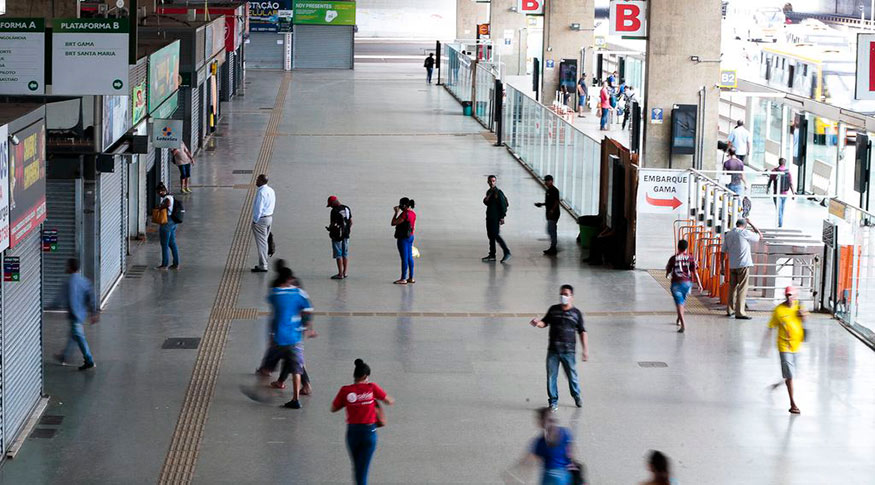Monthly Survey of Services
Services sector hits record decrease of 11.7% and losses are spread among its five activities in April
June 17, 2020 09h00 AM | Last Updated: June 17, 2020 11h42 AM

The services sector dropped 11.7% in April, against March, still under the strong influence of social isolation measures to prevent the spread of Covid-19. That is the third consecutive decrease and the biggest in the time series initiated in January 2011. The results of the Monthly Survey of Services, released today (17) by the IBGE, show that the three-month retraction has led to a loss of 18.7%.
According to Rodrigo Lobo, manager of the survey, the sector had also recorded a decrease in February, a short-term change. In March and April the pandemic effects became visible: “the last two months have recorded a cumulative loss of 17.9%, which places services at a level 27% below the series peak, in November 2014”.
All the five activities investigated recorded record decreases, with a highlight to transportation, support services for transportation and mailing (-17.8%) and services rendered to families (-44.1%). Considering the months of March and April, these two sectors had cumulative decreases of 24.9% and 61.6%, respectively.
In the other activities, there were decreases of 8.6% in professional, administrative and complementary services, 3.6% in information and communication services and 7.4% in other services.
According to Mr. Lobo, the loss of revenue in hotels and restaurants was most significant in April, but, although there was a bigger decrease in services rendered to families, the transportation sector accounted for the main negative impact in April, due to its weight in the survey.
“The transportation sector had recorded a decrease in March and a steeper drop in April. Besides the loss of revenue in air transportation of passengers and in collective road transportation, there was a decrease in road transportation of cargo, airport operation, road and railway passenger transportation concessionaires ”, Mr. Lobo explains.
He also highlights that, whereas in March only the last ten days were y the interruption of services considered non-essential, in April, there were a total 30 days of interruption, also accounting for the more significant drop this month.
In regional terms, 26 of the 27 Federation Units recorded decreases between March and April, with a highlight to losses in São Paulo (-11.6%) and Rio de Janeiro (-12.7%), with negative contributions from the segment of lodging and feeding.
The only positive impact came from Mato Grosso (9.0%). “The increase of 9.0% does not make up for the loss of 12.6% recorded in March. In terms of activity, there was an increase of railroad cargo transportation, relative to the flow of grain production in that area, and the weight of the transportation sector above 60% in the state”, Mr. Lobo adds.
Against April 2019, there was a decrease of 17.1%, also the most significant in the time series. In terms of that indicator, there was decline in four of the five activities surveyed: transportation, support services for transportation and mailing (-21.2%), services rendered to families (-65.2%), professional, administrative and complementary services (-17.3%) and information and communication services (-4.8%). The sector of other services (1.0%) registered the only positive contribution this month.
Tourism activity index falls by 54.5%
In April, the decrease in tourism activities was also more significant, and reached 54.5% against the March rate. Sectors of air transportation of passengers, restaurants and hotels were the most affected segments, and decline was more significant because of the longer period with interrupted activities in April (30) versus March.
In regional terms, all the 12 Federation Units followed that trend to decline, with highlight to São Paulo (-52.0%), Rio de Janeiro (-52.7%), Minas Gerais (-49.4%) and Bahia (-63.1%).




















